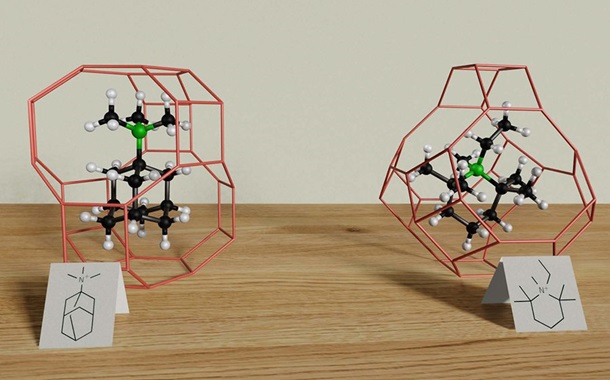Achieving Carbon Neutrality: Strategies in Organizations, Engagement and IT Innovations
Downloads
This study examines the challenges organizations face in achieving carbon neutrality by analyzing employee awareness, organizational practices, and the role of information technology (IT). It aims to (1) assess employee engagement in sustainability initiatives, (2) evaluate the effectiveness of organizational policies in promoting carbon neutrality, and (3) explore the potential of IT solutions in reducing emissions. A mixed-method approach was used, combining questionnaires and interviews to capture quantitative and qualitative insights. Employees from various industries were surveyed to assess their awareness, while interviews provided deeper insights into organizational strategies and IT adoption. Statistical and thematic analyses identified key gaps and opportunities. The study reveals that limited employee awareness hinders sustainability efforts, emphasizing the need for targeted engagement programs. Organizational effectiveness in achieving carbon neutrality varies, with standardized policies and dedicated sustainability teams playing a crucial role. IT adoption levels differ, but data analytics and emerging digital technologies demonstrate strong potential for optimizing carbon reduction strategies. This research integrates organizational, technological, and behavioral perspectives, highlighting the importance of employee engagement and IT solutions in sustainability efforts. It provides actionable insights for organizations seeking to implement effective carbon neutrality strategies.
Downloads
[1] Bonneuil, C., Choquet, P. L., & Franta, B. (2021). Early warnings and emerging accountability: Total’s responses to global warming, 1971–2021. Global Environmental Change, 71. doi:10.1016/j.gloenvcha.2021.102386.
[2] Iacobuţă, G. I., Brandi, C., Dzebo, A., & Elizalde Duron, S. D. (2022). Aligning climate and sustainable development finance through an SDG lens. The role of development assistance in implementing the Paris Agreement. Global Environmental Change, 74. doi:10.1016/j.gloenvcha.2022.102509.
[3] Ahmad, T., Kumar, N., Kumar, A., Mubashir, M., Bokhari, A., Paswan, B. K., & Qiblawey, H. (2024). Unveiling the potential of membrane in climate change mitigation and environmental resilience in ecosystem. Environmental Research, 245, 117960. doi:10.1016/j.envres.2023.117960.
[4] IEA. (2022). Global CO2 emissions rebounded to their highest level in history in 2021. International Energy Agency (IEA), Paris, France.
[5] Chen, J. M. (2021). Carbon neutrality: Toward a sustainable future. The Innovation, 2(3), 100127. doi:10.1016/j.xinn.2021.100127.
[6] IPCC. (2022). Climate Change: A Threat to Human Wellbeing and Health of the Planet. Taking Action Now Can Secure Our Future. The Intergovernmental Panel on Climate Change (IPCC), Geneva, Switzerland.
[7] IEA. (2018) CO2 Emissions from Fuel Combustion 2018-Highlights. International Energy Association (IEA), Paris, France.
[8] European Parliament. (2022). What Is Carbon Neutrality and How Can It Be Achieved by 2050. European Parliament, Strasbourg, France.
[9] Chen, L., Msigwa, G., Yang, M., Osman, A. I., Fawzy, S., Rooney, D. W., & Yap, P.-S. (2022). Strategies to achieve a carbon neutral society: a review. Environmental Chemistry Letters, 20(4), 2277–2310. doi:10.1007/s10311-022-01435-8.
[10] Rahman, M. N., & Wahid, M. A. (2021). Renewable-based zero-carbon fuels for the use of power generation: A case study in Malaysia supported by updated developments worldwide. Energy Reports, 7, 1986–2020. doi:10.1016/j.egyr.2021.04.005.
[11] Webb, D. (2023). Sustainability Leadership: Mapping The Path to Net Zero and Beyond with Apple, Google, And Microsoft. Master Thesis, Johns Hopkins University, Baltimore, Maryland.
[12] Palmer, A. (2023). Amazon sees decline in carbon emissions for the first time. CNB, Los Angeles, United States. Available online: https://www.cnbc.com/2023/07/18/amazon-sees-decline-in-carbon-emissions-for-the-first-time.html (accessed on June 2025).
[13] Dyson, J. (2023). Sustainability at Dyson. Dyson, Singapore. Available online: https://www.dyson.com/sustainability (accessed on August 2025).
[14] Nestle. (2023). Nestle Net Zero Roadmap. Nestle, Vevey, Switzerland. Available online: https://www.nestle.com/sites/default/files/2020-12/nestle-net-zero-roadmap-en.pdf (accessed on August 2025).
[15] Intel. (2022). Intel Commits to Net-Zero Greenhouse Gas Emissions in its Global Operations by 2040. Intel, Santa Clara, United States. Available online: https://www.intel.com/content/www/us/en/newsroom/news/net-zero-greenhouse-gas-emissions-operations.html (accessed on August 2025).
[16] Sinha, A., Sengupta, T., & Alvarado, R. (2020). Interplay between technological innovation and environmental quality: Formulating the SDG policies for next 11 economies. Journal of Cleaner Production, 242, 118549. doi:10.1016/j.jclepro.2019.118549.
[17] Ken Lun, C. C., Rong, T. H., Seng, L. K., Cheah Ni, C. C., Thinakaran, R., Tin, T. T., & Batumalay, M. (2022). a Case Study on the Impact of Video Games Towards Malaysian Youth. Journal of Theoretical and Applied Information Technology, 100(19), 5840–5853.
[18] Roscoe, J. T. (1969). Fundamental research statistics for the behavioral sciences. Holt Rinehart and Winston, New York, United States.
- This work (including HTML and PDF Files) is licensed under a Creative Commons Attribution 4.0 International License.





















